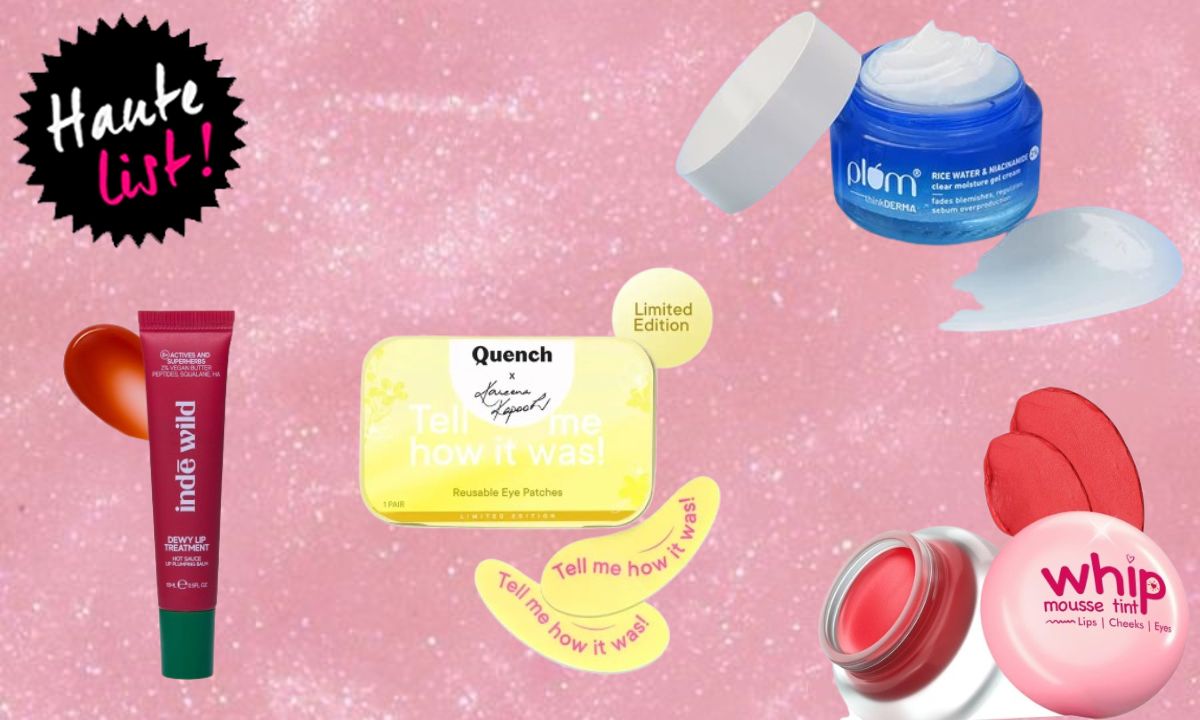Skincare Ingredient Combinations to Avoid, According to a Dermatology Expert
Listen To The Experts!

When it comes to skincare, we often seek the best results by combining various products and ingredients. However, it is important to understand that not all skincare ingredients play well together. Dr. Chytra Anand, a renowned Celebrity Cosmetic Dermatologist and Founder of Kosmoderma Clinics & SkinQ, shares her recommendations on skincare ingredient combinations that should be avoided. By understanding these combinations, you can ensure that our skincare routines are effective and safe.
1. AHA With Retinol
Dr Chytra Anand warns against combining retinol, known for its aggressive nature, with any exfoliating or highly acidic ingredients. When retinol is mixed with AHAs (such as glycolic acid) or BHAs (such as salicylic acid), it can lead to over-exfoliation, increased skin irritancy, redness, and post-inflammatory hyperpigmentation. This combination can leave the skin raw, sensitive, and highly susceptible to photodamage. Therefore, it is advised to avoid mixing AHA with retinol.

Also Read: These 7 Skincare Hacks Are A Recipe For Disaster, So Steer Clear!
2. BHA With Retinol (Salicylic Acid)
Similar to AHA, combining retinol with BHA (salicylic acid) can have adverse effects on the skin. The potential for over-exfoliation and skin irritation increases when these two powerful ingredients are mixed. To maintain a healthy skin barrier and prevent unwanted side effects, it is recommended to refrain from combining BHA with retinol.

3. Benzoyl Peroxide With AHA Or BHA
Benzoyl peroxide, commonly used to treat acne, is known to be drying and irritating to the skin on its own. When combined with AHAs or BHAs, both of which are highly irritating, it can exacerbate skin sensitivity and lead to further dryness and irritation. To avoid unnecessary discomfort and potential damage, it is advisable not to mix benzoyl peroxide with AHA or BHA.

Also Read: Dos And Don’ts While Incorporating Vitamin C In Your Skincare. Here Are Some FAQs Answered!
4. Vitamin C with Acids
Vitamin C, a popular skincare ingredient known for its brightening and antioxidant properties, requires a stable and slightly acidic pH to remain effective. However, adding acidic molecules like glycolic acid, malic acid, or salicylic acid to a vitamin C solution can alter the pH balance and increase acidity. This can potentially destabilize vitamin C and diminish its benefits. To ensure optimal results, it is best to avoid combining vitamin C with acids.

Skincare ingredient combinations play a crucial role in achieving healthy and radiant skin. While many ingredients work harmoniously, it is essential to be cautious about certain combinations.
First Published: May 15, 2023 3:47 PMFrom Niacinamide To Vitamin C, Find Out All The Active Ingredients You Can Use Together
















